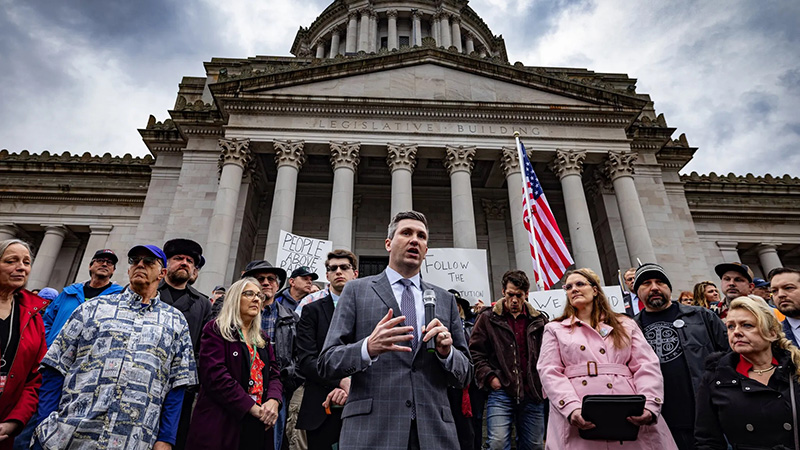
House Republican Leader Rep. Drew Stokesbary, R-Auburn, speaks during a rally to urge Democratic lawmakers to hold hearings to consider six GOP initiatives on Wednesday in Olympia. (Ken Lambert / The Seattle Times)
The Washington State Legislature is currently addressing a series of six initiatives that pose challenges to existing Democratic policies. Among these, WR supports four, including I-2109, a repeal of the capital gains tax; I-2111, a clear prohibition of income taxes; I-2113, which would restore police officers’ ability to pursue vehicles; and I-2124, a repeal of Washington’s long-term care tax.
The Legislature has three options for each initiative: pass it as is, propose an alternative for the ballot, or take no action, leaving the decision to the voters. Democrats, who are in the majority, are proceeding cautiously, focusing on understanding the financial and legal impacts of these initiatives. They are particularly concerned about the potential negative consequences on the state’s budget and legal framework.
On the other hand, Republicans are pushing for swift action and public hearings. They argue that these initiatives deserve prompt consideration, emphasizing the need for a transparent debate on their merits.
This situation underscores the ongoing tension between direct democracy, where citizens have the power to propose and vote on laws, and representative democracy, where elected officials make policy decisions. It brings to the forefront questions about how the Legislature should handle citizen-initiated proposals, especially those that directly conflict with established policies and have significant budgetary and legal implications.
The Legislature’s response to these initiatives, particularly those strongly supported by WR, will not only determine the immediate fate of these policies but also influence how similar initiatives are managed in the future.

